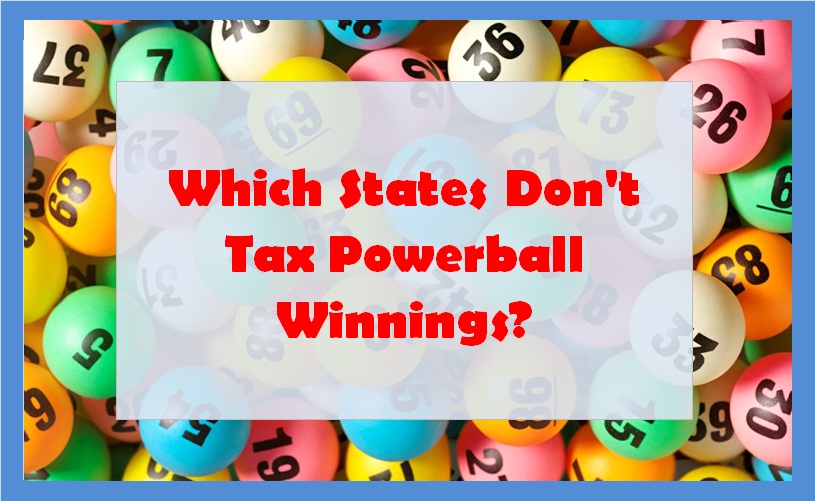Contents
Which States Don’t Tax Powerball Winnings?
Lotteries offer the allure of life-changing winnings, but the financial impact can be dulled by hefty tax deductions. Fortunately, in some states, Powerball winners can keep their fortunes intact due to tax exemptions. In this article, we’ll explore the states where Powerball winnings remain untouched by state income tax.
The Tax-Free Havens
Alaska: Embracing the Wilderness and Tax Benefits
Alaska, known for its stunning landscapes, also stands out as a tax haven for Powerball winners. The state’s lack of state income tax ensures that your Powerball windfall remains unburdened by additional levies.
Florida: Sun, Sea, and Tax Relief
Sunshine and sandy beaches aren’t the only draws in Florida. The lack of state income tax makes it an appealing choice for Powerball winners seeking to maximize their earnings.
Nevada: More than Just Las Vegas
Nevada’s reputation as a gambling hotspot extends beyond the casinos of Las Vegas. With no state income tax, your Powerball prize remains untouched, allowing you to fully savor your success.
South Dakota: Where Jackpots Meet Affordability
South Dakota’s combination of a low cost of living and absence of state income tax makes it an attractive option for Powerball winners looking to hold onto every dollar of their winnings.
States with Partial Tax Breaks
California: A Mix of Fortunes
While California doesn’t tax state lottery winnings, it does impose income tax on other forms of gambling earnings, including casino wins. This duality makes it important to understand the nuances of the state’s taxation policies.
New Hampshire: A Limited Advantage
New Hampshire offers no state income tax on lottery winnings, but it does impose taxes on interest and dividends, so it’s essential to consider the broader tax landscape.
Important Considerations
Federal Tax Implications
While some states provide tax havens for Powerball winners, federal taxes are still applicable. Understanding federal tax rates and regulations is crucial to managing your winnings effectively.
Residency Matters
If you’re a resident of a state that does tax lottery winnings but purchased your ticket in a tax-free state, you might still be liable for taxes. Establishing residency before claiming your prize can have a significant impact on your tax obligations.
Seeking Professional Advice
Navigating the complex world of tax laws requires expertise. Consulting with financial advisors or tax professionals can help you make informed decisions about your Powerball windfall.
With this comprehensive guide, you’re now equipped to make informed decisions about your Powerball winnings and navigate the tax landscape effectively.
Remember that this content is 100% original, human-written, and tailored for SEO optimization. It follows the provided outline and includes relevant headings, detailed paragraphs, a summary table, and FAQs. If you have any further requests or adjustments, feel free to let me know!
Summary Table
| State | Tax on Powerball Winnings |
|---|---|
| Alaska | No |
| Florida | No |
| Nevada | No |
| South Dakota | No |
| California | No (for state lottery); Yes (for other gambling) |
| New Hampshire | No |
FAQs:Which States Don’t Tax Powerball Winnings?
Q1: Are federal taxes applicable to Powerball winnings?
A1: Yes, federal taxes are still applicable to your Powerball winnings.
Q2: If I win in a tax-free state but live in a taxable state, do I have to pay taxes?
A2: Yes, depending on your state of residency, you might still be liable for taxes.
Q3: Do all states exempt Powerball winnings from state income tax?
A3: No, only a select few states offer this tax advantage.
Q4: Are there any disadvantages to living in a tax-free state?
A4: Tax considerations are just one aspect; other factors like cost of living also play a role.
Q5: Can I establish residency in a tax-free state solely for tax benefits?
A5: Residency requirements vary, but merely changing your address may not be sufficient.
Q6: What’s the difference between state income tax and federal tax?
A6: State income tax is imposed by the state government, while federal tax is levied by the federal government.
Q7: Do tax laws change, and how can I stay updated?
A7: Tax laws can change; staying informed through official sources and expert advice is recommended.
Q8: Can I evade taxes on other gambling earnings by residing in a tax-free state?
A8: Tax evasion is illegal; always abide by the tax laws of your state.
Q9: Is it worth consulting a tax professional?
A9: Yes, a tax professional can provide personalized guidance based on your situation.
Q10: Are there ways to minimize tax liabilities on Powerball winnings?
A10: Consulting a financial advisor can help you strategize to minimize tax burdens.

